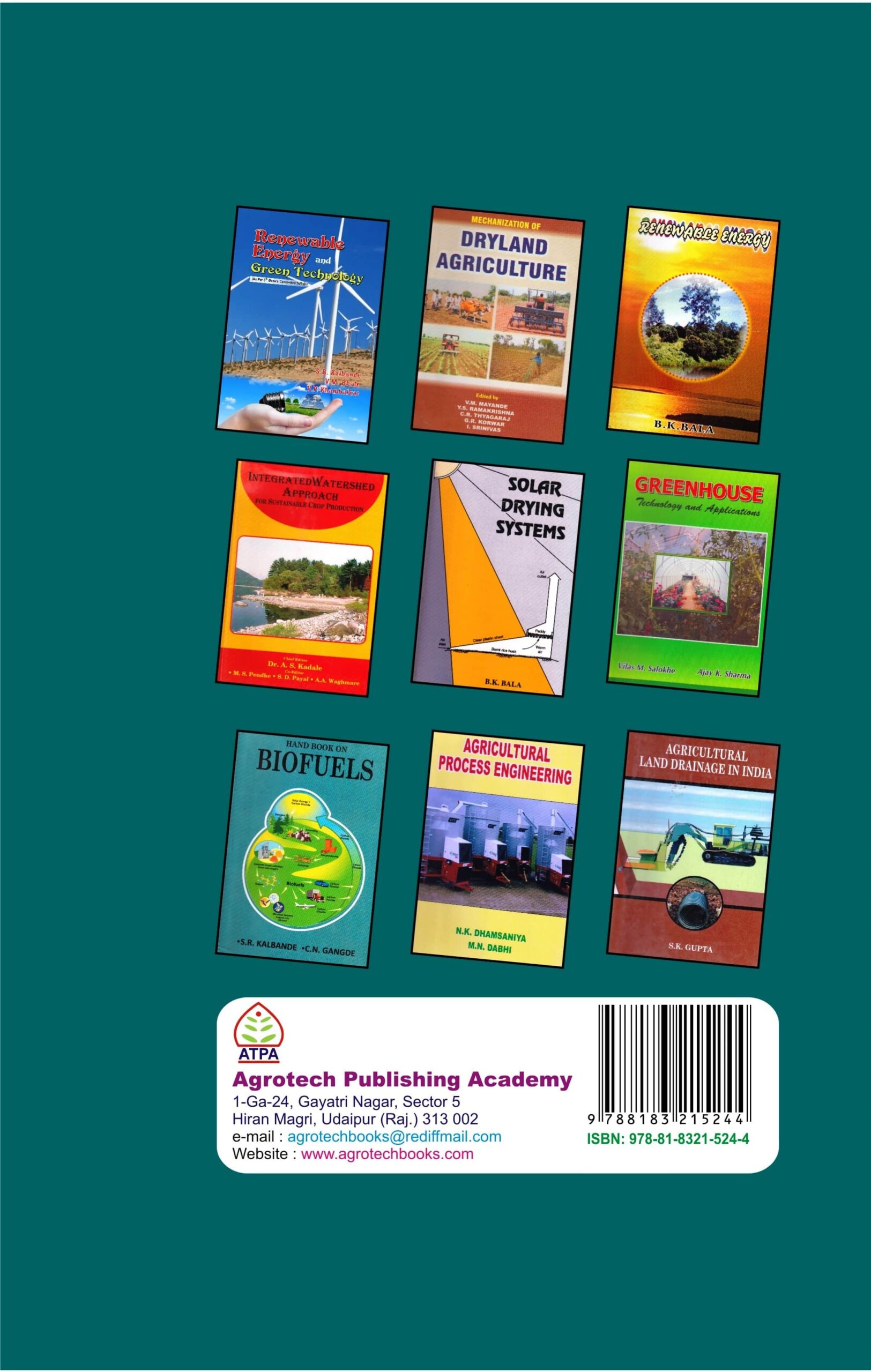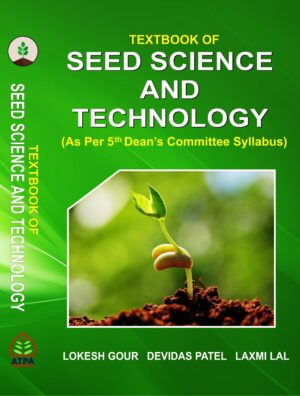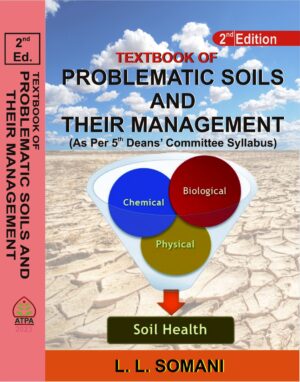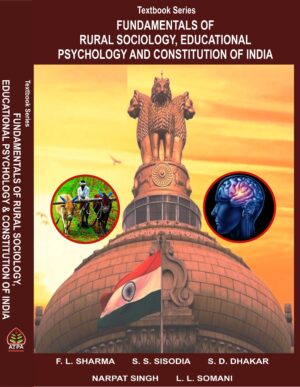TEXTBOOK ON RENEWABLE ENERGY & GREEN TECHNOLOGY
₹750.00
AUTHORS: DEEPAK SHARMA, KAPIL KUMAR SAMAR AND NEELAM RATHORE
PUBLISHING YEAR: 2020
ISBN: 9788183215244
© All Rights Reserved
Description
ABOUT THE BOOK
The book contains chapters on basics of renewable energy, brief introduction to biomass and various bio-fuels, detailed description of biogas technology along with design steps, overview about gasification technology, various solar thermal energy based gadgets along with solar photovoltaic system, their designs steps, application etc. Further, it also contains general overview of the wind power technology, classification of wind turbines and their design steps. Various government schemes on renewable energy sector is presented for the benefit of readers.
The book has been written in simple language and the content is arranged in such a systematic manner that makes its application very effective. It is conveniently arranged by application along with some solved questions answers that are commonly asked in the various examinations. The book is a perfect first-stop reference for any scientist, engineer, technical staff or student looking for information on renewable energy resources and green technology.
CONTENT
| S. No. | TITLE | PAGE | ||
| Preface | 3 | |||
| About the Authors | 4 | |||
| About the Book | 5 | |||
| 1. | BASICS OF ENERGY | 9-16 | ||
| 1.1 | Energy and Power | 9 | ||
| 1.2 | Types of Energy | 10 | ||
| 1.3 | Various forms of Energy | 10 | ||
| 1.4 | Classification of Energy Sources | 11 | ||
| 1.1.1 | Renewable Energy | 11 | ||
| 1.1.2 | Non-renewable Energy | 13 | ||
| 1.5 | Energy Scenario in India | 14 | ||
| 1.6 | Energy Contribution in Indian Agriculture Sector | 14 | ||
| 2 | BIO ENERGY | 17-22 | ||
| 2.1 | Introduction to Biomass | 17 | ||
| 2.2 | Types of biomass | 18 | ||
| 2.3 | Conversion processes of biomass | 18 | ||
| 2.4 | Biomass derived fuels and technologies | 18 | ||
| 2.4.1 | Charcoal Production | 18 | ||
| 2.4.2 | Gasification | 19 | ||
| 2.4.3 | Biogas plants, types and advantages | 19 | ||
| 2.4.4 | Ethanol Production | 19 | ||
| 2.4.5 | Methanol Production | 20 | ||
| 2.4.6 | Biodiesel production | 20 | ||
| 2.5 | Air required for combustion of biomass | 21 | ||
| 2.6 | Calorific Value of biomass based fuels | 22 | ||
| 3 | BIOGAS TECHNOLOGY | 23-33 | ||
| 3.1 | Introduction to biogas | 23 | ||
| 3.2 | Properties of biogas | 23 | ||
| 3.3 | Microbiology of biogas production | 23 | ||
| 3.3.1 | Hydrolysis | 24 | ||
| 3.3.2 | Acid formation | 24 | ||
| 3.3.3 | Methane formation | 24 | ||
| 3.4 | Classification of biogas plants | 25 | ||
| 3.5 | Factors involved in biogas production | 28 | ||
| 3.6 | Uses of biogas | 30 | ||
| 3.7 | Selection of size | 32 | ||
| 4 | BIOMASS GASIFICATION | 34-41 | ||
| 4.1 | Introduction to biomass | 34 | ||
| 4.2 | Biomass gasification | 35 | ||
| 4.3 | Mechanism of gasification process | 35 | ||
| 4.4 | Type of gasifiers | 37 | ||
| 4.5 | Utilization of producer gas | 41 | ||
| 5 | SOLAR ENERGY | 42-73 | ||
| 5.1 | Introduction to Solar | 42 | ||
| 5.2 | Solar Radiation | 43 | ||
| 5.3 | Ground measurement of solar radiations | 44 | ||
| 5.4 | Solar Cooking System | 45 | ||
| 5.4.1 | Principle of cooking | 46 | ||
| 5.4.2 | History of solar cooker | 46 | ||
| 5.4.3 | Advantages and disadvantages of solar cooker | 46 | ||
| 5.4.4 | Types of solar cooker | 47 | ||
| 5.4.5 | Cooking energy and time requirement | 50 | ||
| 5.5 | Solar water heater | 52 | ||
| 5.5.1 | Working of solar water heater | 52 | ||
| 5.5.2 | Advantages and disadvantages of solar water heater | 52 | ||
| 5.5.3 | Types of solar water heating system | 53 | ||
| 5.5.4 | Major component of solar a solar water heater | 55 | ||
| 5.5.5 | Applications of solar water heater | 56 | ||
| 5.5.6 | Designing of solar water heater | 56 | ||
| 5.6 | Solar dryer | 57 | ||
| 5.6.1 | Working principle of solar dryer | 57 | ||
| 5.6.2 | Advantages and disadvantages of solar dryer | 57 | ||
| 5.6.3 | Types of solar dryer | 57 | ||
| 5.6.4 | Factor affecting solar drying | 60 | ||
| 5.7 | Solar distillation | 60 | ||
| 5.7.1 | Working of solar distillation unit | 60 | ||
| 5.7.2 | Advantages and disadvantages of solar distillation system | 61 | ||
| 5.7.3 | Components and specification of solar distillation unit | 61 | ||
| 5.7.4 | Types of solar distillation | 62 | ||
| 5.7.5 | Designing of solar distillation unit | 63 | ||
| 5.8 | Solar photovoltaic system | 63 | ||
| 5.8.1 | Simple working of a solar cell | 64 | ||
| 5.8.2 | Advantages and limitations of solar PV system | 65 | ||
| 5.8.3 | Types of solar cells | 66 | ||
| 5.8.4 | Components of a solar PV system | 66 | ||
| 5.8.5 | Application of solar PV system | 67 | ||
| 5.8.6 | Designing of solar PV system for various application | 70 | ||
| 6 | WIND ENERGY | 74-79 | ||
| 6.1 | Basics of wind energy | 74 | ||
| 6.2 | Wind flow and power in the wind | 74 | ||
| 6.3 | Principle of wind energy conversion | 75 | ||
| 6.4 | Power in wind | 75 | ||
| 6.5 | Type of wind turbine | 76 | ||
| 6.6 | Components and specifications of a windmill | 77 | ||
| 6.7 | Key points of the chapter | 78 | ||
| 7 | VARIOUS SCHEMES ON RENEWABLE ENERGY TECHNOLOGIES | 80-82 | ||
| 7.1 | National Biogas and organic manure Management Programme (NBOMMP) | 80 | ||
| 7.2 | Jawahar Lal Nehru National Solar Mission | 81 | ||
| PRACTICALS | 83-108 | |||
| SOME TIPS FOR ENERGY CONSERVATION | 109-116 | |||
| TERMINOLOGY | 117-127 | |||
| GLOSSARY | 128-132 | |||
ABOUT THE AUTHORS
Prof. Deepak Sharma, (Ph.D, FIE) has more than 36 years experience of teaching undergraduate and post graduate engineering students in renewable energy engineering discipline. He is also engaged in research, extension and popularization of renewable and sustainable energy solutions amongst farmers, entrepreneurs, industrialists and general masses. Prof. Sharma is presently working as Professor and Principal Investigator in the Department of Renewable Energy Engineering, College of Technology and Engineering, MPUAT, Udaipur. He has guided fIVE Ph.D. scholars, 19 M. Tech. Students and has authored 33 research publications in reputed International/ national journals. Dr. Deepak Sharma has attended International course on Energy Management in Small and Medium Scale Industries under Netherlands Fellowship Programme at The Netherlands (Sept-Oct, 2003), 2 weeks short term course on Gender and Energy at Kathmandu, Nepal (2006), International Renewable Energy Conference at Bangkok, Thailand (2009), etc. Prof. Sharma is recipient of Rajasthan Energy Conservation Award-2017 by the Govt. of Rajasthan and Commendation Medal Award by the Indian Society of Agricultural Engineers (2005-06). Dr. Sharma is Governing Council Member of Solar Energy Society of India, New Delhi (2018-19) and Divisional Editor of Journal of Agricultural Engineering.
Er. Kapil Kumar Samar is working as Project Manager at Biogas Development and Training Center, Udaipur. He has more than 7 years of experience in research, extension and popularization of biogas technology. He has completed his Master of Engineering in Renewable Energy in 2012. Er. Samar is recipient of Young Professional Engineer Award-2016 by the CTAE Alumni Society and Young Scientist Award-2019 by ITSR Foundation. Er. Samar has contributed 16 research publications in reputed International/national journals, 3 book chapters, 27 articles, 3 technical booklets and 4 books.
Dr. Neelam Rathore completed her schooling from Kendriya Vidhyalaya. She enrolled at Geetanjali Institute of Technical Studies, Udaipur and passed her Bachelor of Technology (Electronics and Communication Engineering) in 2013. She passed her M.Tech (Renewable Energy Engineering) from Maharana Pratap University of Agriculture and Technology, Udaipur in 2015. She completed her Ph.D. from Department of Renewable Energy Engineering (DREE), MPUAT, Udaipur in 2019. She is presently working as Senior Research Fellow in DREE. She has contributed 7 research papers, 2 book chapters, 2 articles and 1 Book in renewable energy aspects.
Additional information
| AUTHOR/AUTHORS | DEEPAK SHARMA, KAPIL KUMAR SAMAR, NEELAM RATHORE |
|---|---|
| PAGES | 132 |
| BINDING | Hard Back |
| PUBLICATION YEAR | 2020 |





